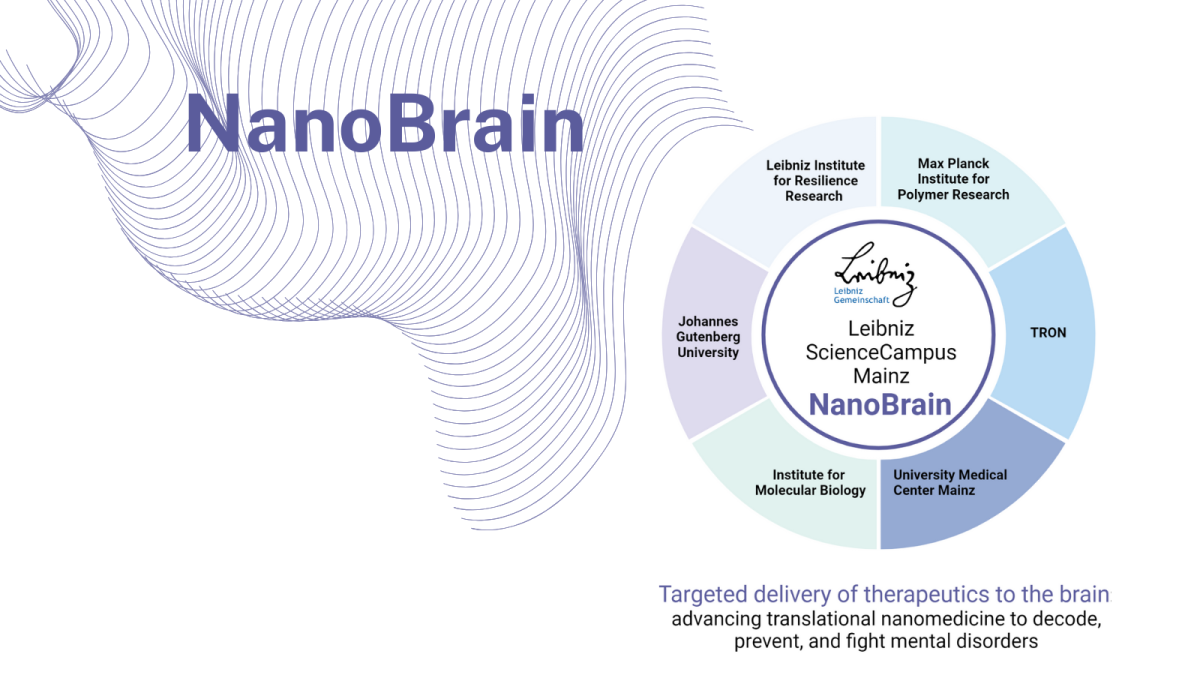KICK-OFF LEIBNIZ SCIENCE CAMPUS "NANOBRAIN"

HERE WE GO: KICK-OFF FOR THE LEIBNIZ SCIENCE CAMPUS "NANOBRAIN" IN MAINZ, FUNDED WITH 1.2 MILLION EUROS
On October 10, 2023, experts from the Leibniz Science Campus "NanoBrain" convened in Mainz to inaugurate the research project, which is set to run for an initial four-year period. The overarching objective is to devise innovative, and highly targeted methods for preventing and treating diseases of the central nervous system.
Collaborating on this ambitious project are experts from the Leibniz Institute for Resilience Research (LIR), Mainz University Medical Center (UM), Johannes Gutenberg University Mainz (JGU), Max-Planck-Institute for Polymer Research (MPI), TRON/BioNTech, and the Institute of Molecular Biology (IMB).
Stress-related depressive disorders stand as a significant contributor to chronic illnesses globally. Whether manifesting as burnout, depression, or gastrointestinal disorders, sufferers face substantial individual impairments. The health-economic repercussions of these conditions pose formidable challenges, especially in the current times of crisis. The necessity for substances to traverse the blood-brain barrier to reach their target in the brain adds complexity to the development of innovative therapeutic approaches.
This is precisely where the Leibniz ScienceCampus "NanoBrain" takes action to make a difference: The expert team brings together outstanding expertise in the fields of nanomedicine and mRNA technology, combined with translational stress and resilience research, making them well-equipped to tackle scientific challenges.
In pursuit of overcoming the blood-brain barrier, the research endeavors of the Leibniz Science Campus "NanoBrain" are centered on highly specific inquiries: How can novel therapeutics be precisely delivered to the brain? Is it feasible for them to exclusively act in selected brain regions, thereby minimizing potential side effects? Could it be conceivable to address stress-related illnesses, such as depression, in a targeted and personalized manner through mRNA therapy in the future?



